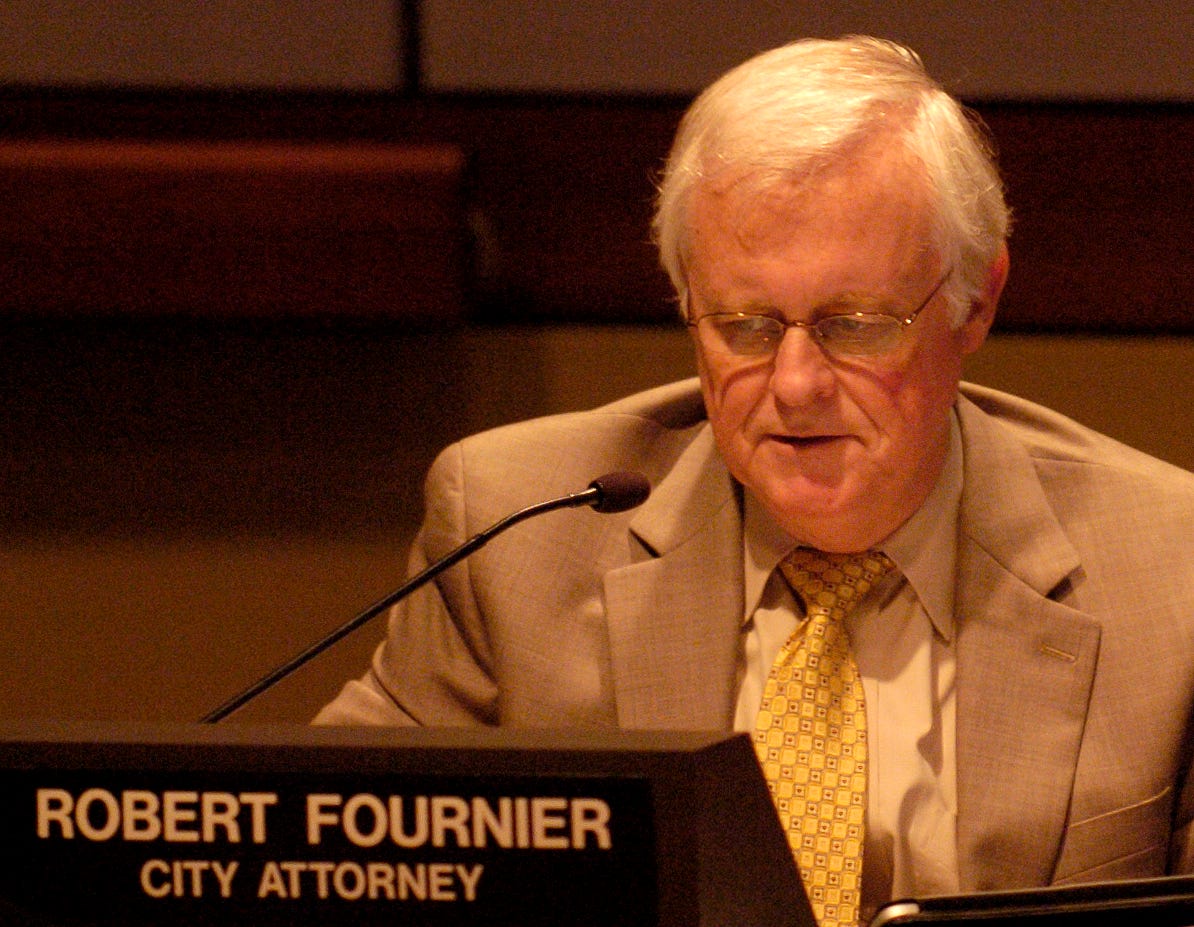City Attorney Robert Fournier was directed by a 3-2 vote Monday to present a model ordinance to the board. He told the Herald-Tribune that while his mandate from the City Commission lacks specifics and there are many questions from opponents of the proposal to consider, he wants to keep the language as simple as possible.
Fournier said he will probably have something to present to the commission in a few months.
A “Lobbying & Transparency Act” was first proposed by Arroyo at an Oct. 2 meeting. Two days later, in a letter to city officials, Arroyo outlined why Sarasota should join the more than 450 cities and counties in the state with a formal lobbying process.
The commissioner envisioned a registration requirement for anyone paid to lobby the city and a requirement that they disclose their client. The information would be kept in a digital, publicly accessible database.
Both of Arroyo’s pushes for a lobbying ordinance came as he faced scrutiny for potential ethics issues. He was investigated by the Florida Department of Law Enforcement in 2023 for his failure to register a charity before accepting contributions.
The investigation was closed after state authorities found “there is no evidence to prove that Erik Arroyo willfully committed a crime” in connection with the charity. The commissioner told the Herald-Tribune he had “clearly made some technical errors” in registering his Sarasota City Foundation, which had accepted donations from local developers.
Arroyo also said he thinks a lobbying ordinance would have saved him from a recent controversy in which he was found to be a registered agent for a company involved with the proposal for private development at Ken Thompson Park. The commissioner said he wasn’t aware of developer Jeffrey Koffman’s plans to use the company, Park Golf Entertainment, until it was reported by the Herald-Tribune.

In a presentation to city officials Monday, Fournier outlined similar lobbying ordinances he found in other Florida cities. However, some of them went further than he felt the city commission envisioned for its own process – such as itemizing expenses, the amount of money spent lobbying each commissioner and the specific issues being lobbied.
“What I was thinking of is maybe putting some optional provisions they can discuss,” Fournier said. “I know (the commission) wants it more on the simple side than detailed with numerous requirements. I think they just basically want registration.”
He will also have to decide if the provisions would only impact city commissioners and staff or include city advisory boards.
The idea was put on the back burner while the city waited to see if the Florida Legislature would implement a similar law. The “Government Accountability” bill, which would have established “requirements for lobbying before counties, municipalities, and special districts that mirror requirements for lobbying the executive branch, such as requiring registration and investigation for noncompliance,” did not pass the state House in this year’s session, which concluded last month.
Opponents of the proposal speaking during the public comment period said those who already want to address the City Commission must identify themselves at meetings. A city “Request to Speak” card includes space to put one’s name, address, phone number, email, who they may represent, and whether they are a city resident.
However, City Auditor Shayla Griggs said her staff is not required to force potential public commenters to declare all the information.
“If people decide they don’t want to fill out all of the information, that’s not our job to enforce that. We’re not enforcers,” Griggs told city commissioners.
Vice Mayor Jen Ahearn-Koch and Commissioner Debbie Trice have consistently opposed the proposal and questioned the necessity of a formalized lobbying program. Ahearn-Koch repeatedly questioned which problems in city hall a lobbying ordinance would fix. Arroyo pushed back, saying that the measure was about improving transparency.
Ahearn-Koch also worried about an ordinance’s unintended consequences, such as dissuading everyday citizens from addressing city officials. Fournier said he was focused on preventing that from becoming an issue.
“I will prepare it so that it isn’t a restraint on anybody appearing in front of the City Commission. I’m going to put in an exception for citizens who just want to access the commissioner, and they’re not being paid.” Fournier said. “To speak at a commission meeting, there shouldn’t be any prior restraint to register as a lobbyist.”
The city attorney said he wants to focus on regulating communications that precede official meetings.
Arroyo also made clear in his proposal and at Monday’s City Commission meeting that those who are not being paid or are “voicing concerns on their behalf or on behalf of the general community” would not need to register. He also said that lobbying of city staff may be unknown to the commissioners or city residents without a formal tracking system.
“We have heard concerns from some of our residents that there is so much going on before something comes to us,” Arroyo said at Monday’s meeting. “It’s all public record, but unless we knew to ask for it, there’s no way this would be brought to our attention.”
This article originally appeared on Sarasota Herald-Tribune: Sarasota to explore ordinance to regulate lobbying of city officials
